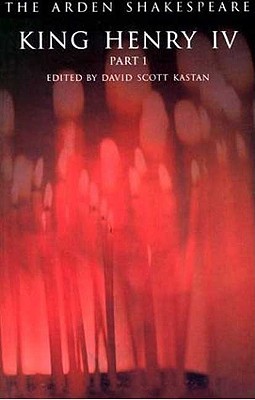Otherwise Ted Bundy could have simply provided witness testimony that he saw a shapeshifting cat adopt his form and do all the killings and if the law were to adopt your standard minus the special pleading (which is a fallacy) Ted Bundy would have to be freed based on his "evidence" and would still be killing in my view.
In my opinion.
Nonsense. I very clearly stipulated the need to examine and analyze evidences provided (both pro and con) and weigh against other evidence. Ted Bundy had every right to claim he had seen your absurd cat commit the crime. Even a poor prosecutor would argue that his testimony put him at the scene of the crime, and would call in a forensic psychologist as well. Without taking your hypothetical Bundy's ridiculously hypothetical testimony as evidence, the prosecutor would have to find another way to place Bundy at the scene of the crime, perhaps the sober testimony of the girl he tried to kidnap plus a few others, which is what actually happened, nonhypothetcally and seriously,
because testimony is evidence.
To elaborate, after which I will end my participation in regards to your confusion about what constitutes evidence:
The "meaning of evidence is reflected in the definitional section of the Indian Evidence Act (Stephen 1872: 149). When lawyers use the term “evidence” in this way, they have in mind what epistemologists would think of as “objects of sensory evidence” (Haack 2004: 48). Evidence, in this sense, is divided conventionally into three main categories: oral evidence (the testimony given in court by witnesses), documentary evidence (documents produced for inspection by the court), and “real evidence”; the first two are self-explanatory and the third captures things other than documents such as a knife allegedly used in committing a crime.
The term “evidence” can, secondly, refer to a proposition of fact that is established by evidence in the first sense. This is sometimes called an “evidential fact”. That the accused was at or about the scene of the crime at the relevant time is evidence in the second sense of his possible involvement in the crime. But the accused’s presence must be proved by producing evidence in the first sense. For instance, the prosecution may call a witness to appear before the court and get him to testify that he saw the accused in the vicinity of the crime at the relevant time. Success in proving the presence of the accused (the evidential fact) will depend on the fact-finder’s assessment of the veracity of the witness and the reliability of his testimony. (The fact-finder is the person or body responsible for ascertaining where the truth lies on disputed questions of fact and in whom the power to decide on the verdict vests. The fact-finder is also called “trier of fact” or “judge of fact”. Fact-finding is the task of the jury or, for certain types of cases and in countries without a jury system, the judge.) Sometimes the evidential fact is directly accessible to the fact-finder. If the alleged knife used in committing the crime in question (a form of “real evidence”) is produced in court, the fact-finder can see for himself the shape of the knife; he does not need to learn of it through the testimony of an intermediary.
A third conception of evidence is an elaboration or extension of the second. On this conception, evidence is relational. A factual proposition (in Latin,
factum probans) is evidence in the third sense only if it can serve as a premise for drawing an inference (directly or indirectly) to a matter that is material to the case (
factum probandum) .... The fact that the accused’s fingerprints were found in a room where something was stolen is
evidence in the present sense because one can infer from this that he was in the room, and his presence in the room is evidence of his possible involvement in the theft. On the other hand, the fact that the accused’s favorite color is blue would, in the absence of highly unusual circumstances, be rejected as evidence of his guilt: ordinarily, what a person’s favorite color happens to be cannot serve as a premise for any reasonable inference towards his commission of a crime and, as such, it is irrelevant .... In the third sense of “evidence”, which conceives of evidence as a premise for a material inference, “irrelevant evidence” is an oxymoron: it is simply not evidence. Hence, this statement of Bentham (1825: 230):
To say that testimony is not pertinent, is to say that it is foreign to the case, has no connection with it, and does not serve to prove the fact in question; in a word, it is to say, that it is not evidence.
There can be evidence in the first sense without evidence in the second or third sense. To pursue our illustration, suppose it emerges during cross-examination of the expert that his testimony of having found a finger-print match was a lie. Lawyers would describe this situation as one where the “evidence” (the testimony of the expert) fails to prove the fact that it was originally produced to prove and not that no “evidence” was adduced on the matter. Here “evidence” is used in the first sense—evidence as testimony—and the testimony remains in the court’s record whether it is believed or not. But lawyers would also say that, in the circumstances, there is no “evidence” that the accused was in the room, assuming that there was nothing apart from the discredited expert testimony of a fingerprint match to establish his presence there. Here, the expert’s testimony is shown to be false and fails to establish that the accused’s fingerprints were found in the room, and there is no (other) factual basis for believing that he was in the room. The factual premise from which an inference is sought to be drawn towards the accused’s guilt is not established."
The End

